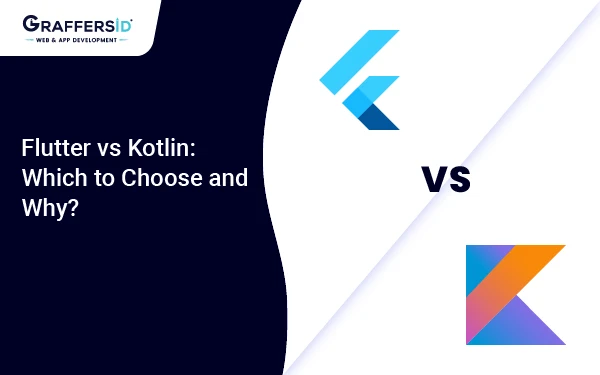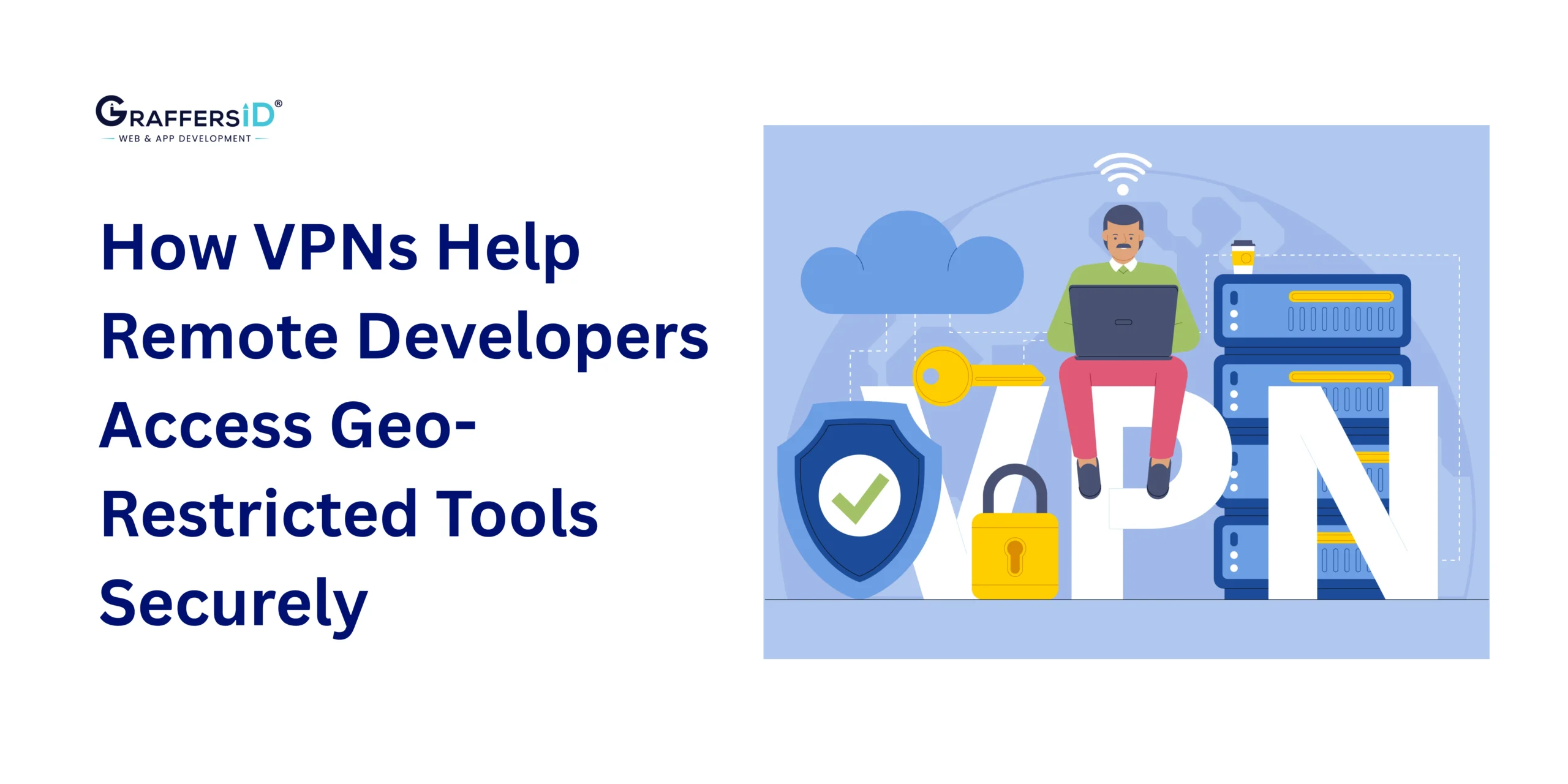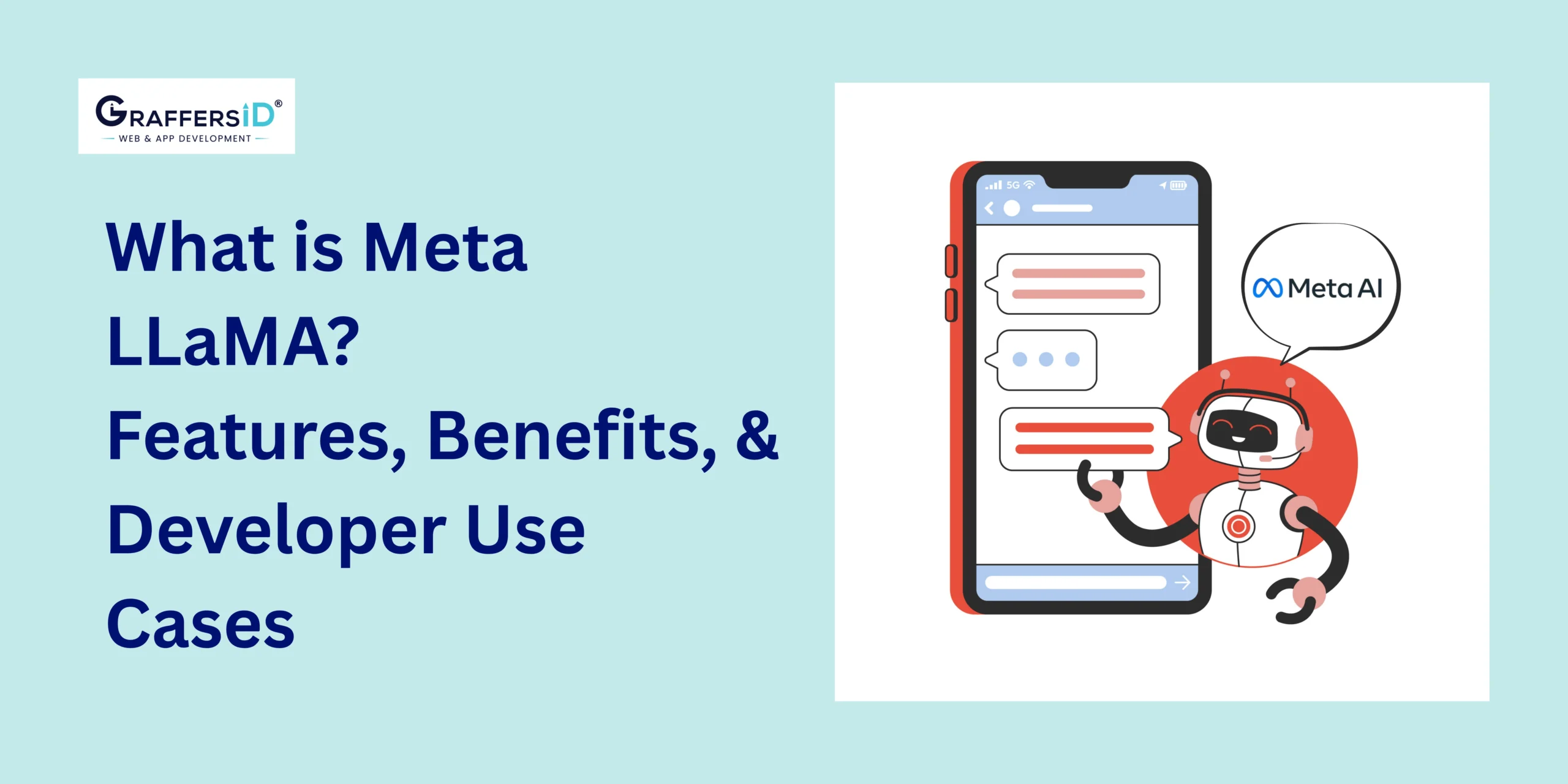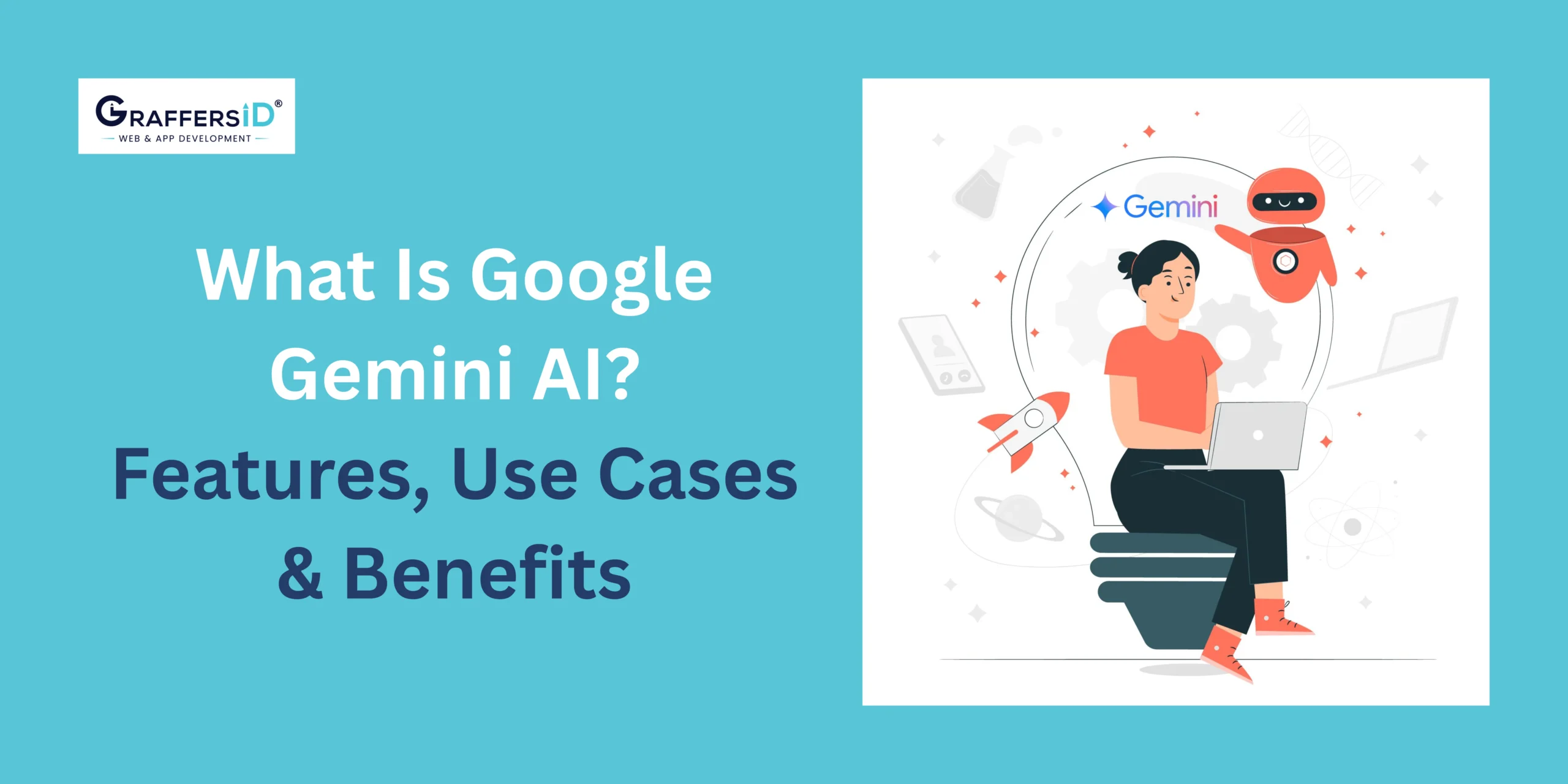Apps have become an inevitable part of our daily lives. And, the app makers if succeeded to gather the mobile user’s attention then the developers would be busy filling their pockets right now. But have you ever wondered, what makes the app a success? Yes, exactly you are right, the technologies used to build mobile applications. In our blog, we will discuss leading technologies for mobile app development i.e. Flutter vs Kotlin. Flutter, which is a framework, on the other hand, Kotlin is a programming language.
A successful mobile app is one that provides something of value to not only its users but also to its makers. Therefore, you need to hire dedicated Kotlin developers or Flutter Developers for your Mobile app.
Now, here comes the plot twist no one saw coming. The app market is dominated by 98% of both Android and iOS users comparatively. And, in such a process, the app built should be such that it caters to the broad market of users.
For the same purpose will you follow a cross-platform app development strategy or stick with the traditional method of making both on separate platforms? Before nodding in affirmation on just one option, take a breath and read the question twice.
The cross-platform is which allows the app development on both platforms using a single code. Cross-platform app development may serve a lot of users on multiple platforms and that too at a lower cost. Speaking of the preferred technological stack for cross-platform app development was Flutter and React Native.
In recent times, the realm of app development has witnessed a new entrant, Kotlin. And, due to the varied features offered by it, the previous preferences were never the same. There has been a sudden shift where the developers are choosing Kotlin and Flutter.
At the moment you must be wondering which is better among the two. Fret not, because we have all the detailed comparisons of both of the technologies listed in the context below. Till then keep reading!
Before diving any further into the discussion let’s discuss
What is Flutter?
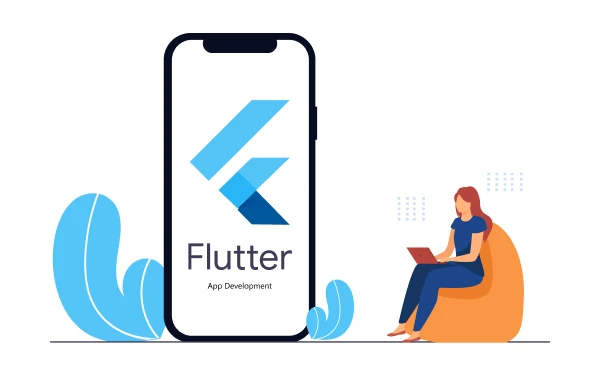
Flutter was introduced in the year 2015. The basic purpose and intent for introducing such technology were to prepare the market for then Google Fuchsia.
Coming back to the topic, Flutter is an open-source that allows its users the ability to craft and build beautiful mobile, web, and desktop applications using a single code.
The best feature of Flutter was that it overcame the technological challenges faced by its competitors and provided a plethora of benefits. And, the same made Flutter an ideal choice when it comes to being chosen as the cross-platform app development technological stack. Another distinct feature that Flutter possessed was the efficiency of securing apps similar to that of a website.
In no time, it was included in the list which stated that it was the top choice for brands like- Google, Square, eBay, EMR, and Ali Baba Group to name a few. AppBrain conducted a survey that reported Flutter holds the accounts of a total of 0.24 percent of the app market and about 0.07% of the total downloads.
In similar terms, if you are using Flutter as a preferred choice for cross-platform app development, then you will find the following advantages
Flutter Advantages:
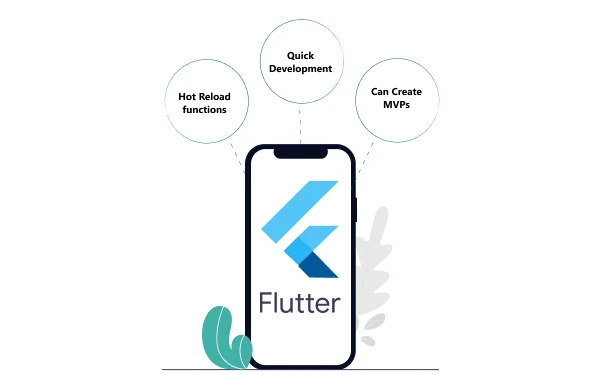
1. Hot Reload Function
Due to the above-mentioned trait, it is a choice of the major brands. The hot reload functionality allows the users to streamline the back-end as the front-end functions of the app, thus ensuring better decision-making processes in the entire app development.
2. Quick Development
Who doesn’t want to use a technology that provides them with less stress and more upper hand at fast development? WE DO! So, if you are looking for a cross-platform app development process that requires low cost and fast development then you have the choice!
3. Can create MVPs
We have read how useful Flutter is when it comes to developing an app in no time quick and at a low cost. This makes it highly favorable to create MVPs and also a prototype.
Flutter Disadvantages:
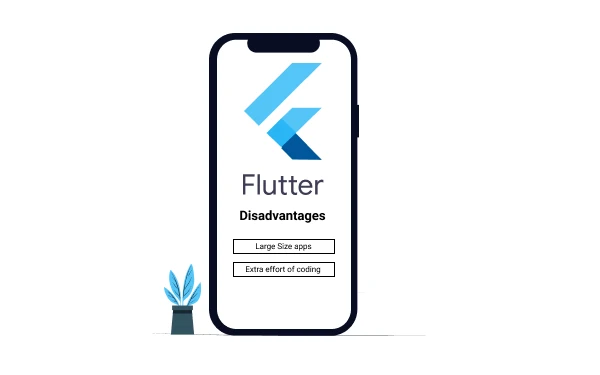
1. Large-size apps
If you are looking to create a flexible-sized app, then this is not an option. Flutter is known to create an app where its size is too big. And, at times, it can turn out to be against your case.
2. Extra Effort in the coding
You have to be well-versed in Dart. What you don’t know? Do not worry it is easy to learn. But if you have limited resources ( most importantly time) then this can turn against your favor.
What is Kotlin?
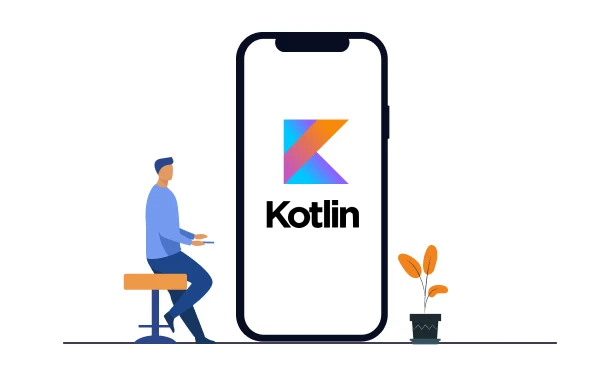
Wait, relax, because we will answer your every question. So give the hyper curiosity of your mind a rest and keep reading. Kotlin is the new-age programming language that was built by JetBrains. He is the maker of the renowned & best IDEs.
Do you know what makes this language best? It was made not for academia but for developers. Kotlin is a general-purpose and open-source programming language. It can be considered a pragmatic platform for Andriod and Java Virtual Machine.
It was initially released in 2010 as a small-scale project but later it was introduced on a high note in 2016. AppBrains found out in a study that, there were over 82,000 who are currently using Kotlin. And, talking about the total app percentage it accounts for 9.93% of apps and more than 22.36% of downloads.
The big and popular giants such as Microsoft, Huawei Video Player, and Samsung use it as their preferred choice.
Kotlin Advantages:
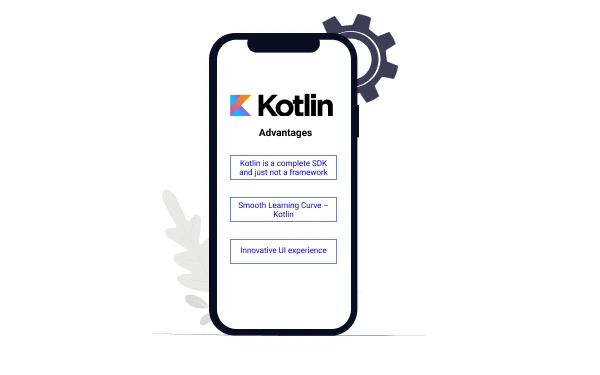
1. Kotlin is a complete SDK and just not a framework –
The above sentence clearly states that you don’t have to shift your entire app on a platform.
2. Smooth Learning Curve
Kotlin possesses similarities to Java, Scala as well and Swift. It is indeed easy to learn the language and provides its users with less struggle when designing a cross-platform app.
3. Innovative UI experience
It is one of the best features of using Kotlin for app development. When you are using Kotlin it provides no challenges to their developers and hence, they can design accordingly with liberty depending upon the behavior, performance as well and functionality of the app-in-making.
Read Also: Flutter vs Swift: Which is Better for iOS App Development?
Kotlin Disadvantages:
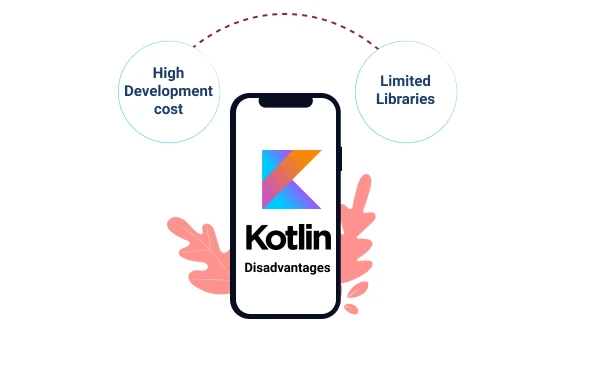
1. High development cost
It is free to use the app, and now you may argue why the cost of the development is sky-high. The answer to the same is quite simple. It offers its users semi-native functionalities. And, hence the entire development process to create such an app can hit hard on the pockets.
2. Limited Libraries
The platform is not in the active stage rather it is in the developing stage. It means the users may have access to the limited availability of the libraries.
But, who won our vote in 2023?
Wait, we have more comparative arguments to draw your attention to.
1. Popularity – Both Flutter and Kotlin is a widely used open-source network that provides free access to their users. Flutter today is gaining more popularity than Kotlin and it is because of the GitHub presence of the former is depicted as 69.5K stars as well as 8.11 forks. And the Kotlin enjoys 28.3 K stars as well as 3.29k forks. In this category, Flutter has undoubtedly won its mass votes.
2. Learning Curve – Kotlin has similarities to Java, and thus, it is quite easy to get accustomed to. But when it comes to Kotlin Multiplatform and Flutter the scenario is quite different.
Speaking about the Kotlin Multiplatform it is an entirely new platform and has fewer resources available. Therefore, after having a glance, Flutter has won our votes when it comes to the learning curve.
3. Cost of Development – Having a value-based idea of the app is one thing but when it comes to creating an app, cost matters. Of course, you might have certain budget restraints and in this regard, Flutter wins our vote. It is because as discussed before flutter has a low cost of development as compared to Kotlin.
4. Performance – Kotlin offers its users a plethora of advantages such as high-speed animation, the same language for both high and back-end needs, and a lot more. But when we compare it with Flutter, it surely lags. Flutter is known for its hot reload functionality, thus, making it users to change easily and accordingly.
Want to Develop a Mobile App Using Kotlin or Flutter? Get a Quote
Is Flutter good in 2023?
During the initial months of 2023, Flutter introduced version 3.7, encompassing a wide range of significant enhancements and additions. This release brought forth notable updates such as a revamped rendering engine specifically for iOS, improved compatibility with Material 3 and iOS-style widgets, enhanced support for internationalization, and notable advancements in background processing capabilities.
What is the Trend of Flutter 2023?
Here are some insights into the potential trends of Flutter in 2023.
Increased Adoption:
Flutter, a cross-platform framework developed by Google, has been gaining popularity since its release. It’s likely that its adoption will continue to grow in 2023 as more developers recognize its advantages, such as faster development cycles, code reusability, and the ability to build apps for multiple platforms (iOS, Android, web, desktop) using a single codebase.
Maturing Ecosystem:
Flutter has a thriving ecosystem with a wide range of packages and libraries developed by the community. By 2023, the ecosystem is expected to become more mature, offering even more tools, plugins, and resources to enhance the development experience and productivity of Flutter developers.
Desktop and Web Support:
While Flutter initially gained popularity for mobile app development, it has made significant progress in supporting desktop and web applications. In 2023, we can expect further improvements and refinements in Flutter’s desktop and web capabilities, making it a more viable option for building cross-platform applications across all major platforms.
Integration with Fuchsia:
Fuchsia is Google’s experimental operating system, and Flutter is one of its primary development frameworks. As Fuchsia continues to evolve, Flutter is likely to receive updates and optimizations to provide seamless integration and support for building apps on the Fuchsia platform.
Enhanced UI/UX Capabilities:
Flutter’s emphasis on providing a beautiful and responsive user interface will likely continue in 2023. The Flutter team and community are likely to introduce new features and improvements that empower developers to create visually appealing and engaging user experiences.
What is the trend of Kotlin 2023?
Android Development:
Kotlin has become the preferred language for Android app development. Google officially announced Kotlin as a first-class language for Android development, which has accelerated its adoption in the Android community. As Android continues to dominate the mobile market, Kotlin is likely to see continued growth in this area.
Cross-platform Development:
Kotlin Multiplatform enables developers to write shared code between different platforms, such as Android, iOS, and the web. This allows for code reusability and easier maintenance across multiple platforms. As cross-platform development gains more attention, Kotlin’s multiplatform capabilities are likely to be increasingly utilized.
Community Support: Kotlin has a strong and active community that provides continuous support, libraries, and frameworks for various purposes. The growing community contributes to the language’s ecosystem, making it more robust and appealing to developers.
Language Features and Enhancements:
JetBrains, the company behind Kotlin, consistently releases updates and improvements to the language. These updates enhance developer productivity, offer new features, and address any existing limitations. The evolution of Kotlin is likely to continue in 2023, making it an attractive choice for developers.
Industry Adoption:
Kotlin has gained adoption beyond Android development, and it is being used in various domains and industries. As more companies and developers experience the benefits of Kotlin, its popularity is expected to increase further.
Conclusion:
Both of the cross platforms are reliable and provide the feature to reduce the overall time. And, due to their unique advantages both of them are giving huge competition to each other.
At times, the choice and preference may depend upon the app type and the functionalities you wish to add. In such scenarios, you may need to find the right company that can guide you through a process of smooth and unique offshore app development solutions.
